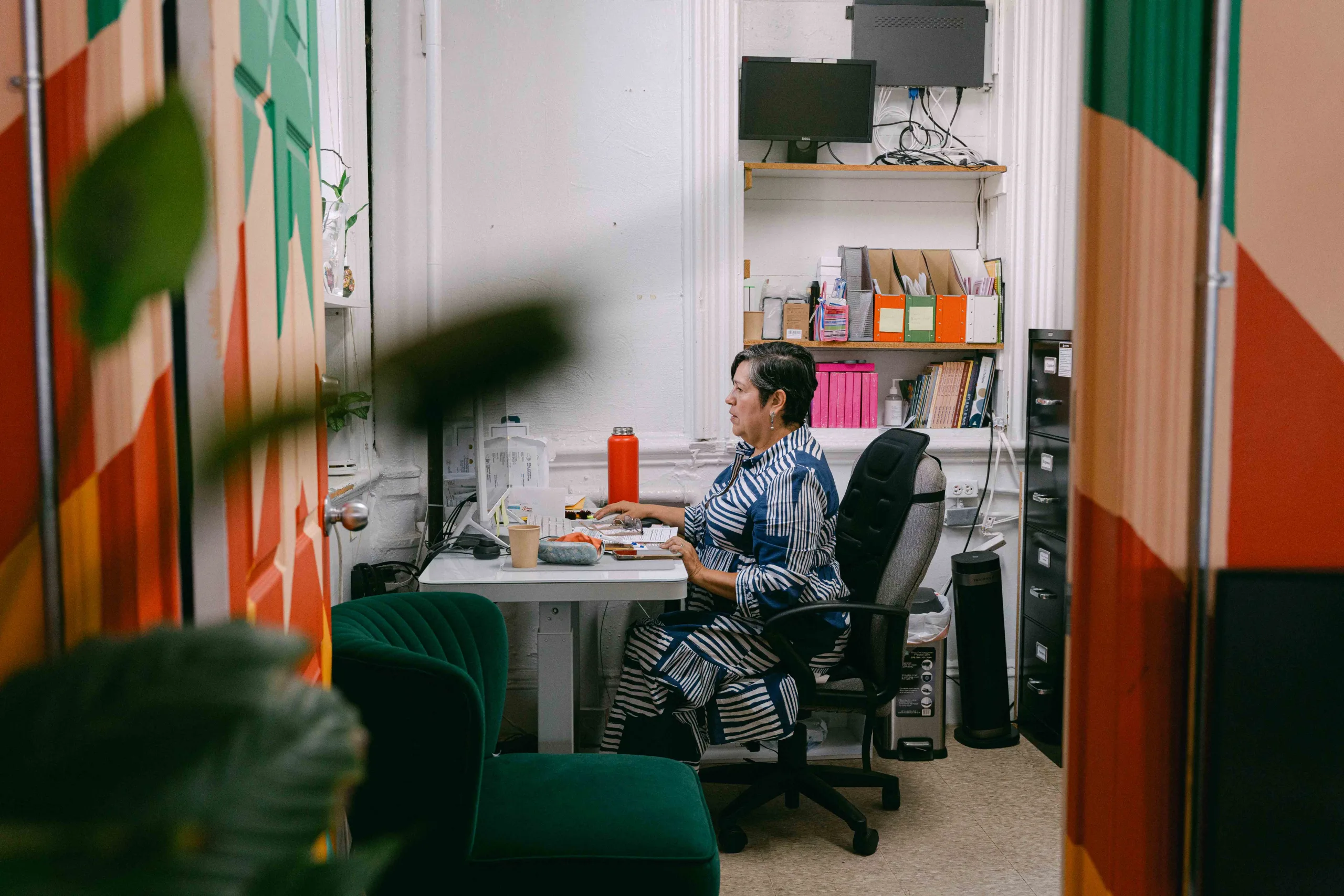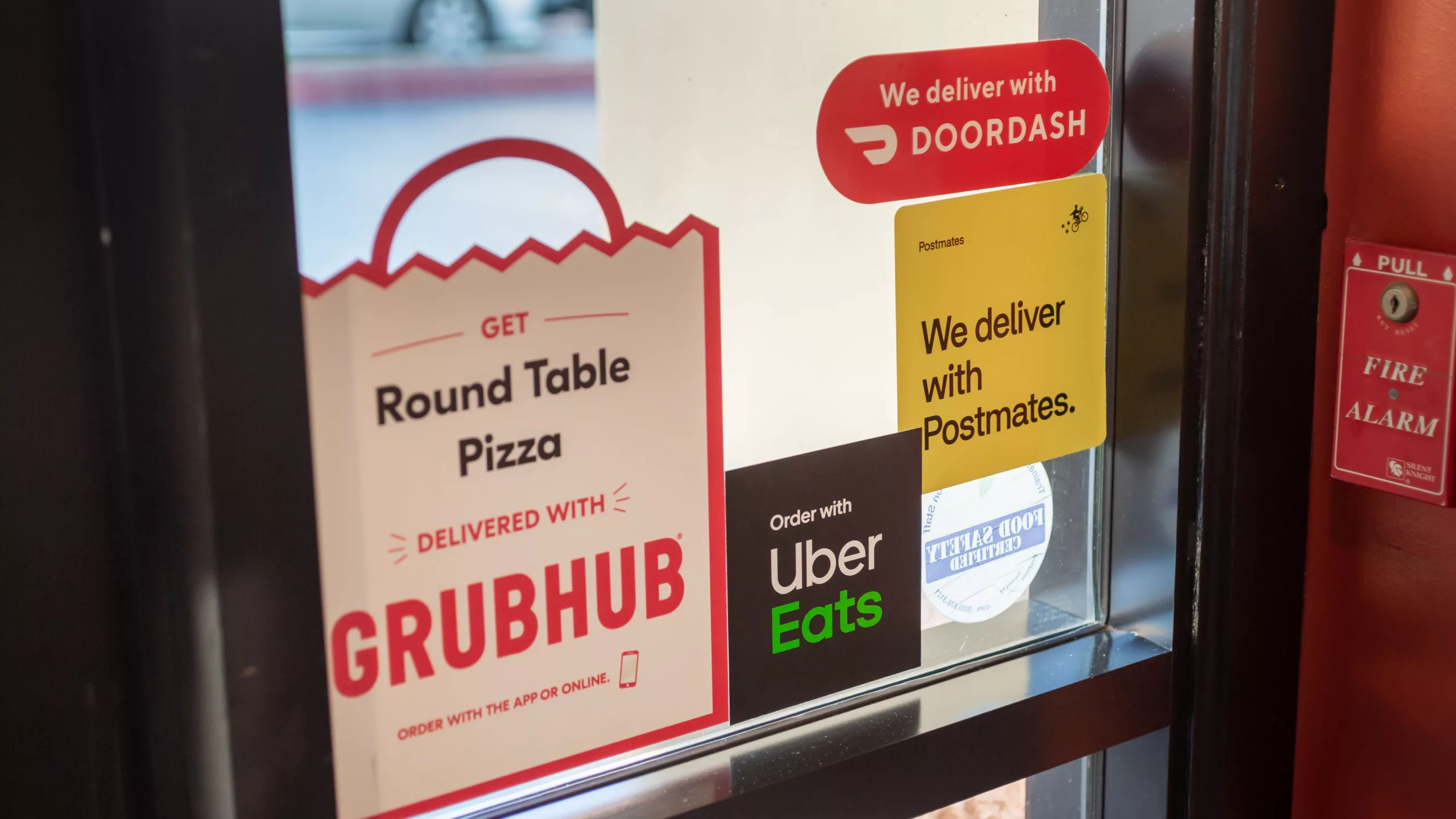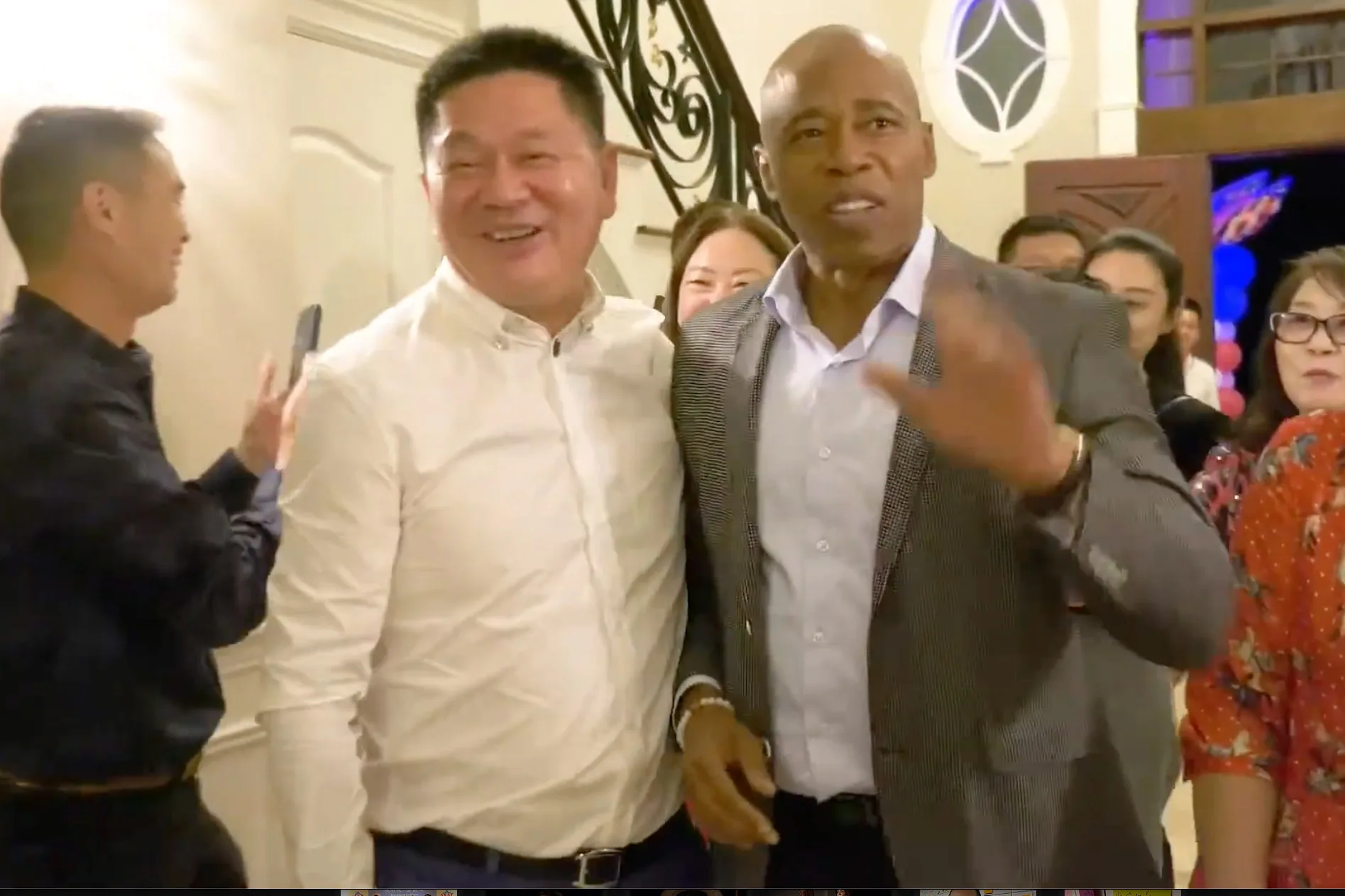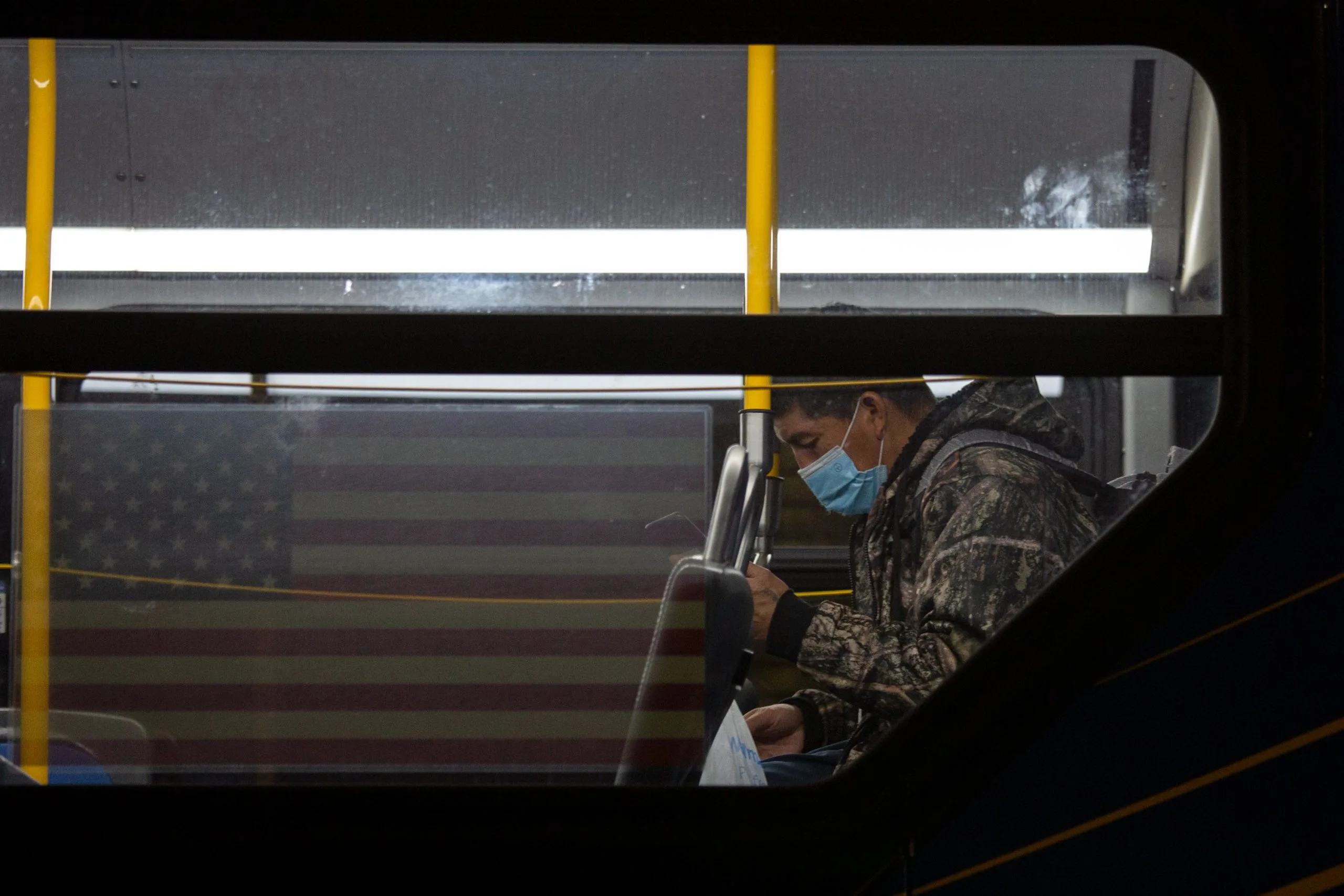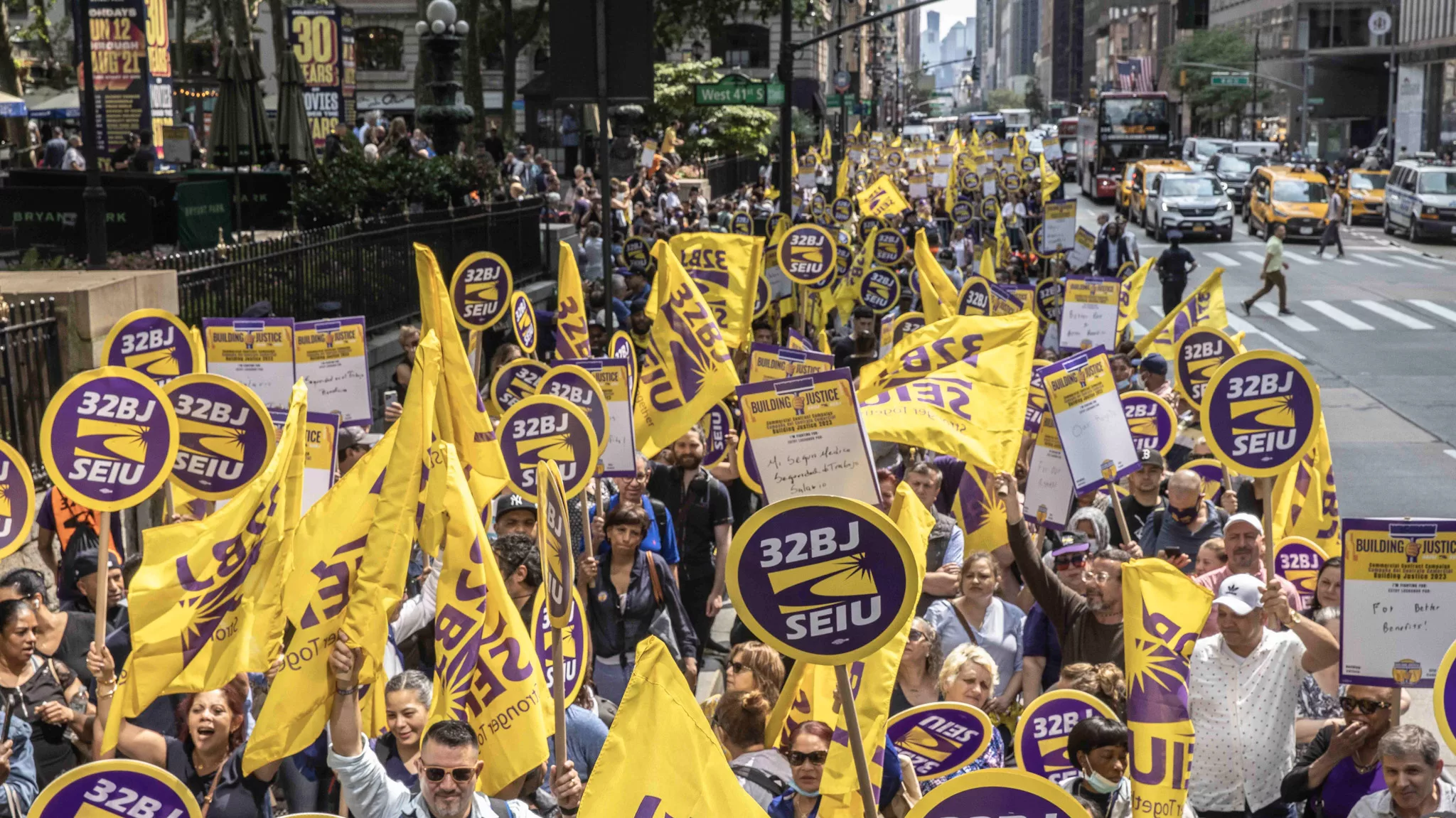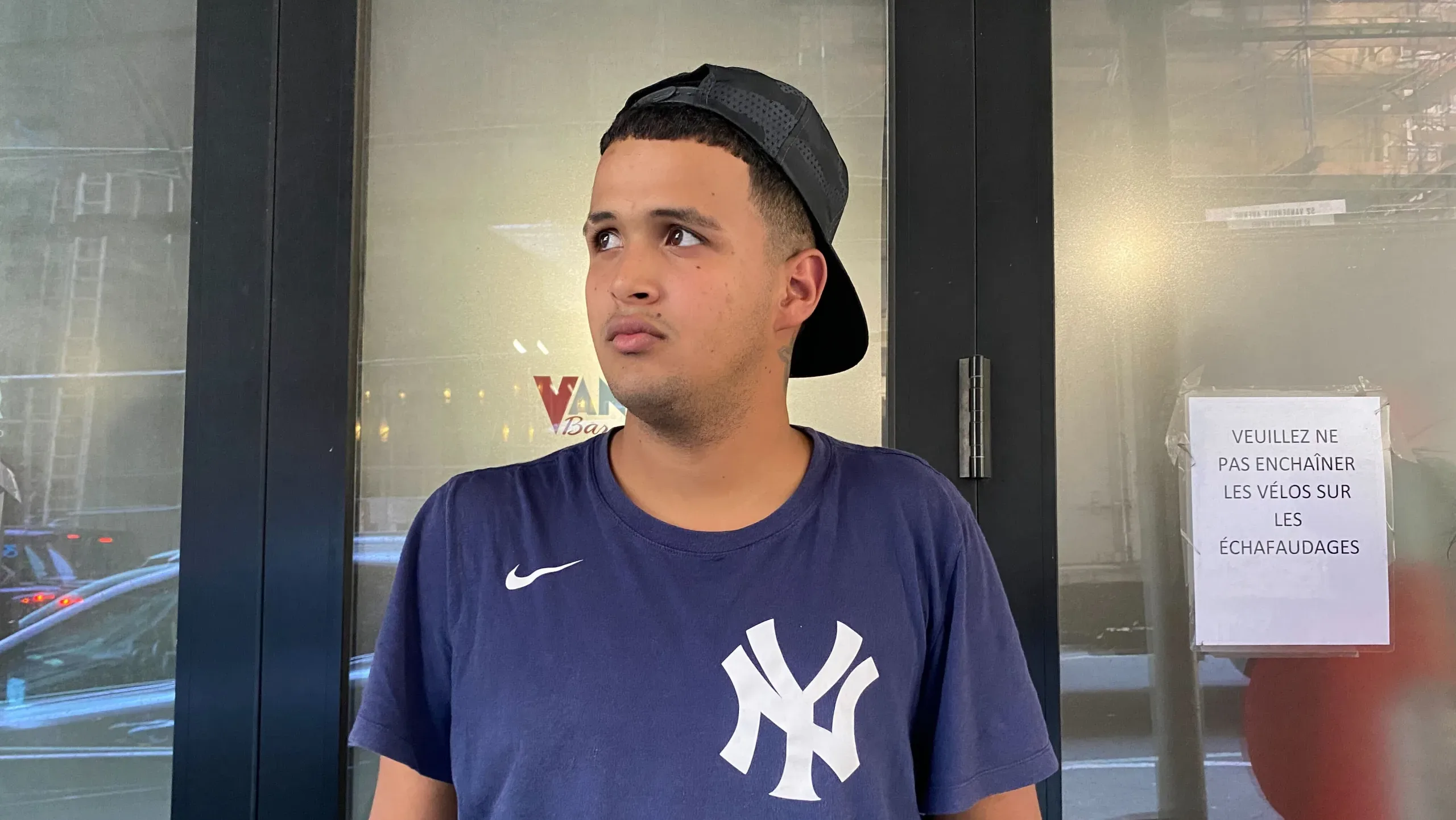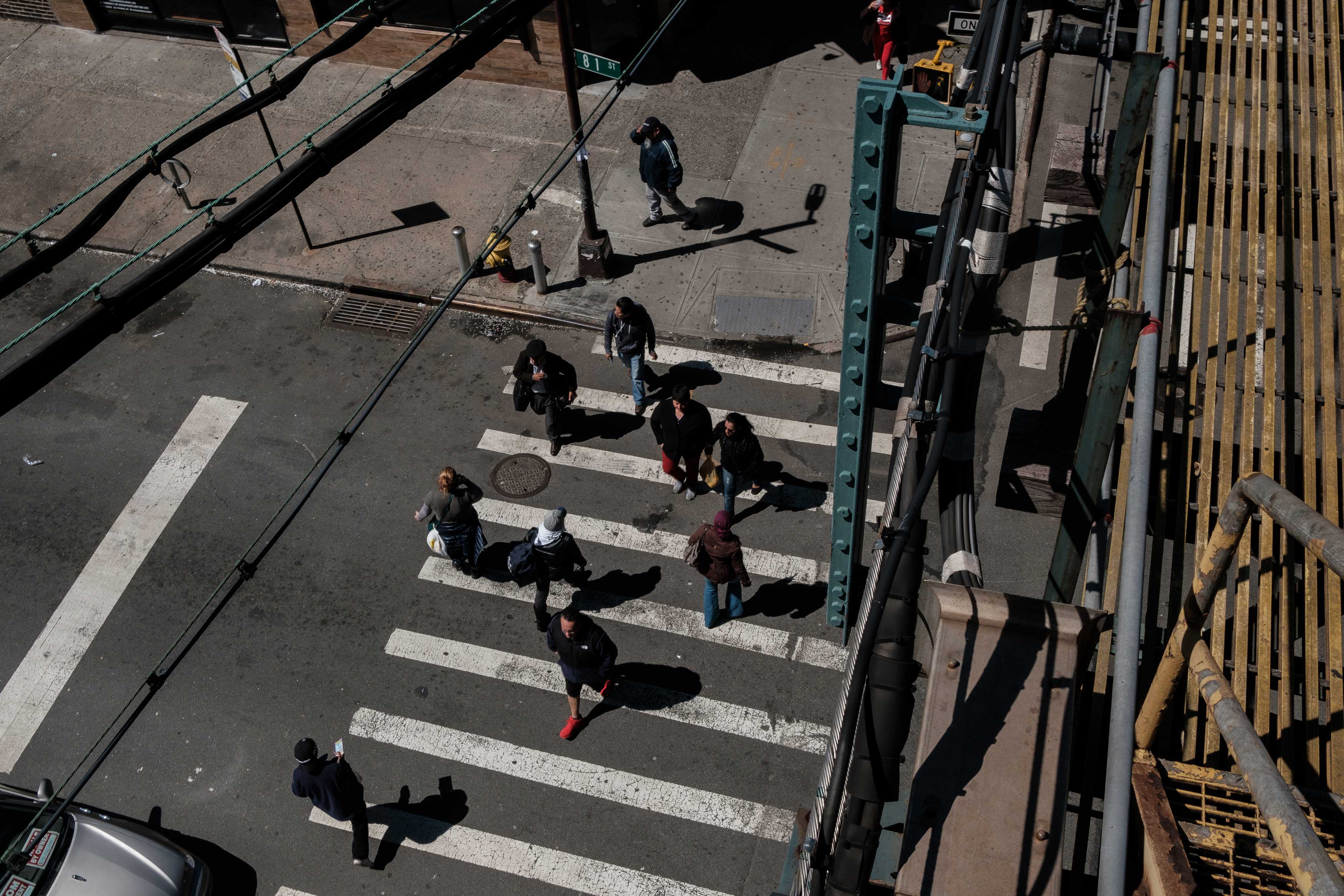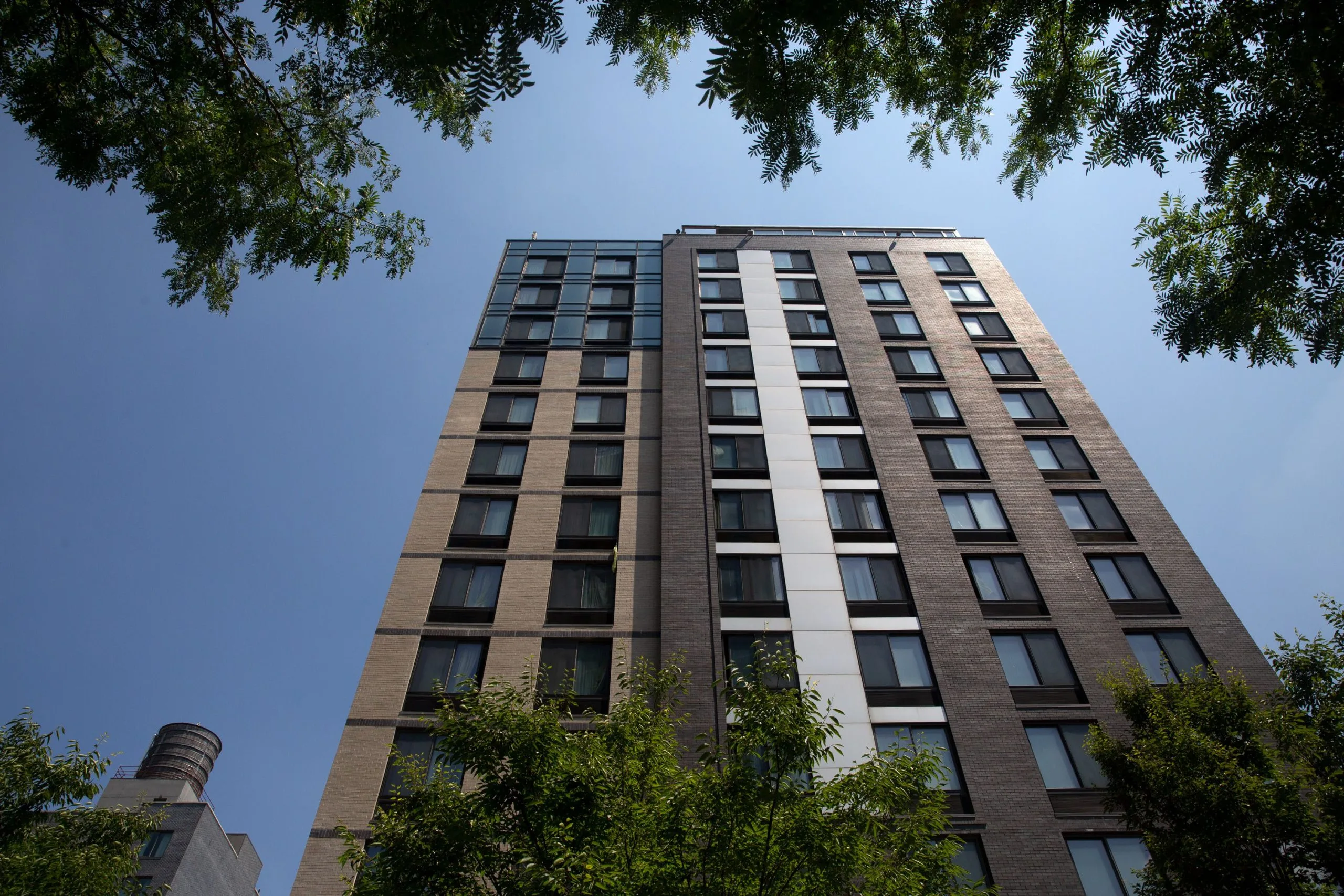Two years ago this October Rogelio Montero was warming up his vocal cords on the second floor of Mixteca, a nonprofit helping Latinx and migrants in Sunset Park. As a new arrival from Venezuela, Montero was using their space to practice. When he finished the last note of Vicente Fernández’s version of “El Rey,” he was met with thunderous applause.
“Imagine you’re rehearsing and suddenly hear people clapping for you,” he said. “It’s such an unforgettable moment.”
Mixteca hired Montero a month later in November to perform at their 2022 Día de los Muertos celebration, marking his first show in the United States. Since then, he has performed at various venues from karaoke bars in Midtown to Fogo de Chão, a popular Brazilian steakhouse.
Also Read: Donations and Volunteers Needed to Help Migrants in NYC
Montero credits his success in New York to the opportunity to rehearse at Mixteca. His experience makes him particularly excited about the organization’s recent plans to expand.“It’s amazing to know they’re growing and that they’ll give others the same help, the same opportunity they gave me,” he said.
This August, Mixteca, a Latina-led nonprofit, announced that they have received $2.5 million from city officials to purchase a permanent building. City officials said the investment will enable Mixteca to expand its services to a 4-story building. With a new home, Mixteca said it will be able to triple its outreach and continue helping the immigrant community in Sunset Park, where rent prices have risen and where asylum seekers have increased the demand for services.
It is not the first time Mixteca will be expanding its space. The organization was founded in 2000 at the corner of 23rd Street and 5th Avenue in Sunset park inside Pablito’s, a Mexican restaurant that is roughly 1,000 square feet. With a growing demand for its services including mental health counseling sessions, consulate appointments, and more, Mixteca moved to the second floor of the building some time in 2004, doubling the size of their space.
But it was during the pandemic that demand for the services in the immigrant community, particularly among Latinx and indigenous people, skyrocketed citywide particularly after many lost their jobs and were unable to access unemployment benefits.
Lorena Kourousias, the executive director of Mixteca, had recently joined the organization in 2019. At the time, she was the only full-time employee working alongside four part-timers. She remembers people lining up outside the building, in front of the pink mural, waiting for their turn to pick up a bag of groceries.
“I remember three restaurants around the corner were struggling because people nearby were not buying food,” she said. “I said to myself, I got some money, I can get the food from you, and we can distribute the meals to the community.”
This became known as Tacos, Tortas, and Testing. The idea was to encourage people to enroll in COVID-19 testing in exchange for getting a free torta, a sandwich filled with refried beans, vegetables and a choice of seasoned meat, popularized for its humongous size. In return, she said that restaurants like El Jalapeño King would also make some money.
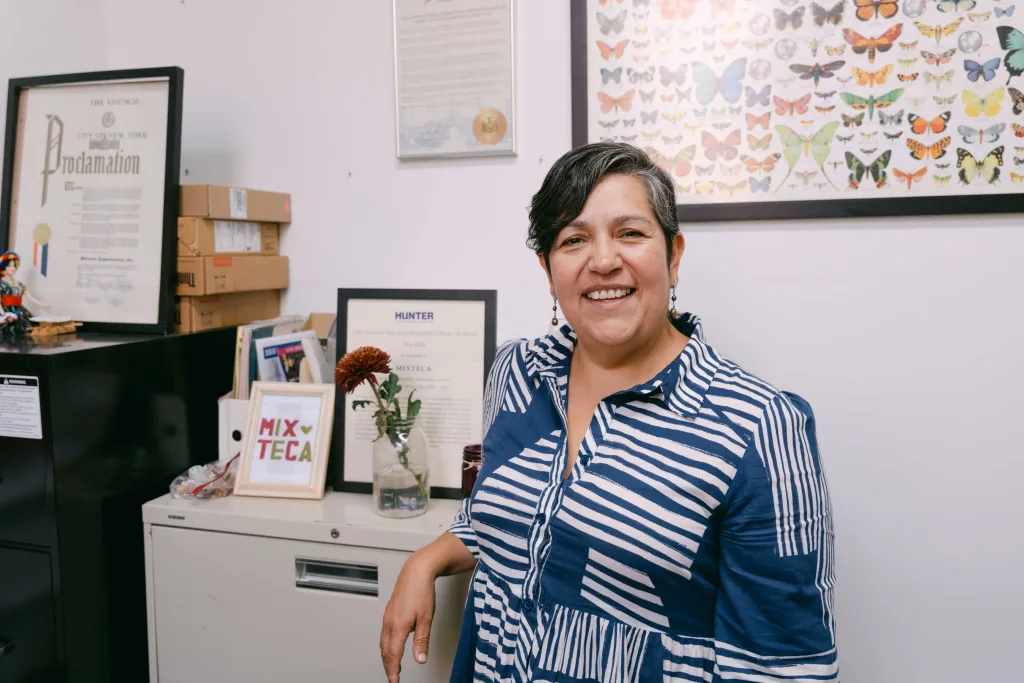
It is the idea of helping the community in Brooklyn that has resonated the most with Kourousias. “Right now the space is not enough. Our food distribution is on the street. We really want to focus on dignity, and provide dignity to the community,” she said.
Kourousias said the new building will be called Casa Mixteca, and it will have four floors, including a rooftop where she hopes to have a community garden, a commercial kitchen where restaurants could team up with the organization to give culinary classes to migrant workers, an elevator to make it more accessible for clients, and a recreational center for teengagers. “In the summer they have the park to go to, but in the winter there are not many places in Sunset Park,” she said. “So we want to create this welcoming space where they can come in and grab coffee or tea, and access a computer.”
Also Read: Brooklyn Nonprofits Tailor Mental Health Care To Their Immigrant Clients’ Cultures
For those like Montero, Mixteca was a lifeline. In New York, he was staying with his cousin in an apartment in Brooklyn where unable to rehearse. One day he visited Mixteca to look for legal assistance, a service they did not provide but referred him to other providers. He remembers asking if he could use the space to practice his singing at the organization.
The staff told him he could come multiple days to practice. “It is not easy to leave behind your family, I felt very sad those days. It’s difficult for everyone,” he said. “I only went there looking for services and received a lot more than that.” He said Mixteca made the Venezuelan community feel welcome during the Christmas celebration where they had hallaca — a plantain-leaf-wrapped cornmeal dough filled with a choice meat and additional ingredients like olives, raising, and capers.
‘Determine their destiny’
Council member Alexa Avilés, D-38, who represents parts of Brooklyn including Sunset Park, provided $1 million of the budget for the new building. The funding comes from a capital fund that every council member has to support capital projects — like school renovations, infrastructure investment and purchasing buildings in the district. “This is not for the faint of heart and it really requires a lot of preparation, and she [Kourousias] did that work,” Avilés said.
She explained that nonprofits often spend a substantial amount of their income on rent — Mixteca spends 30% of their funds — and often are at the whims of landlords. “They will be able to determine their destiny in many ways; it feels like they will have their anchor in the neighborhood at a time when many others do not feel secure,” she said.
Avilés said that the value Mixteca adds to the community has already been proven by the work the organization has been doing for the past two decades. “I have no doubt that given the resources and tools that they will continue to do incredible things for our community,” she said, and added that she also requested $250,000 from Speaker of the New York City Council Adrienne Adams.
The office of Brooklyn Borough President, Antonio Reynoso, provided $1.25 million of the budget for Casa Mixteca. Mixteca had become part of the fabric of Brooklyn by providing services to the immigrant community of the borough, he said. “The people might look different, but the circumstances are identical. They’re the same.”
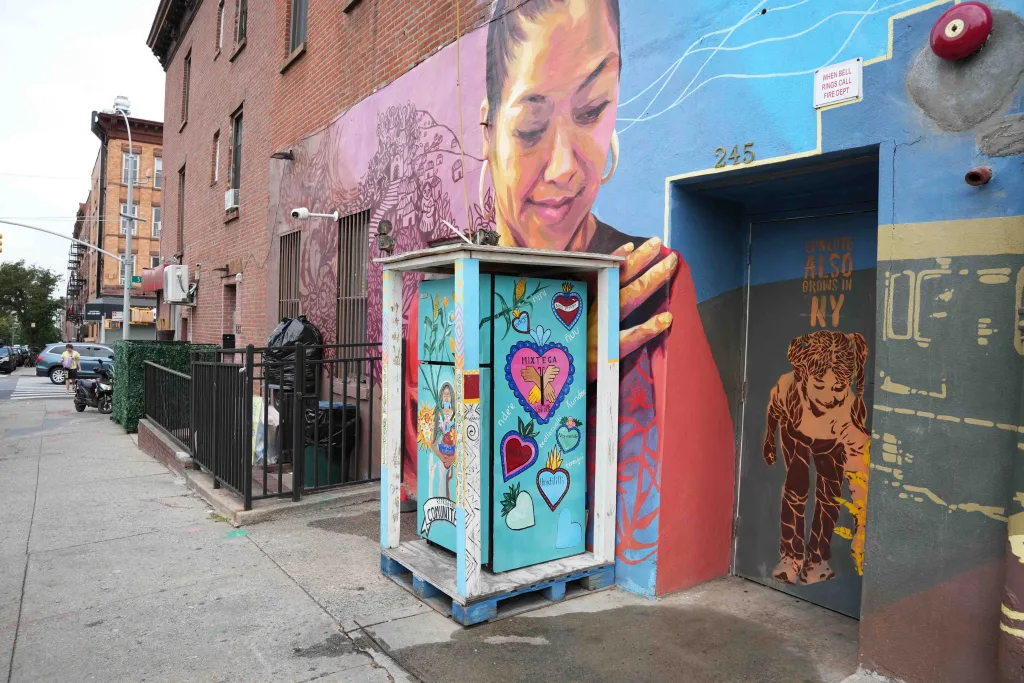
He added that providing Mixteca a permanent residence was a way of letting immigrants know that they are welcomed and recognized in the neighborhood. “I think it means a lot to them, and I can tell they were very proud. They felt that they were seen,” he said of the people who attended Mixteca’s announcement in August.
Reynoso added that he would like city representatives to be similarly involved in helping nonprofits organizations. “It is kind of like not knowing what you have until they are gone.”
Kourousias said that owning the building, where she plans to move by the end of the year, is reflective of the immigrant American dream of owning a home in the United States. “I want [the community] to see that they own a house that they all together are going to own the Casa Mixteca.”
